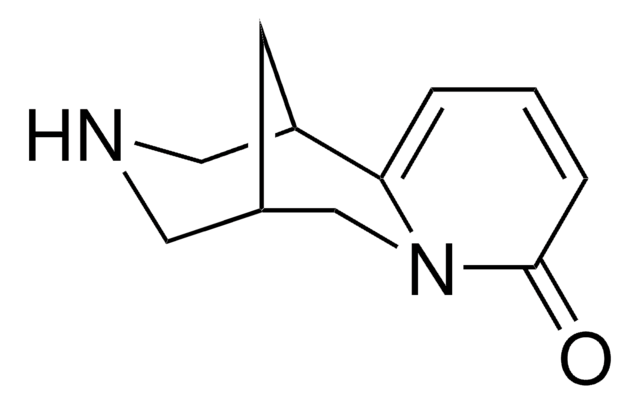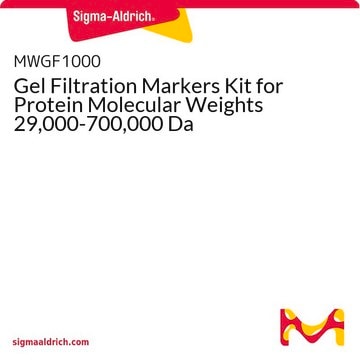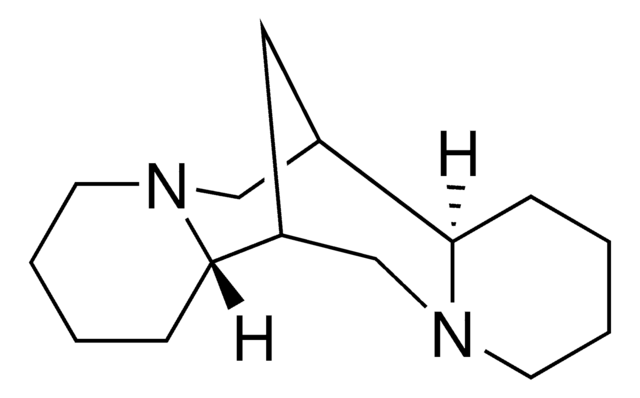C2899
Cytisine
≥99%, powder
Sinónimos:
(−)-Cytisine, (1R,5S)-1,2,3,4,5,6-Hexahydro-1,5-methano-8H-pyrido[1,2a][1,5]diazocin-8-one, (1S,9S)-3,11-Diazatricyclo[7.3.1.03,8]trideca-5,7-dien-4-one, Baptitoxin, Laburnin, Sophorine, Ulexine
About This Item
Productos recomendados
Quality Level
assay
≥99%
form
powder
color
light yellow
bp
218 °C/2 mmHg (lit.)
mp
154-156 °C (lit.)
SMILES string
O=C1C=CC=C2C3CNCC(C3)CN12
InChI
1S/C11H14N2O/c14-11-3-1-2-10-9-4-8(5-12-6-9)7-13(10)11/h1-3,8-9,12H,4-7H2/t8-,9+/m0/s1
InChI key
ANJTVLIZGCUXLD-DTWKUNHWSA-N
Gene Information
rat ... Chrna2(170945) , Chrna3(25101) , Chrna4(25590)
¿Está buscando productos similares? Visita Guía de comparación de productos
General description
Biochem/physiol Actions
Features and Benefits
signalword
Danger
hcodes
Hazard Classifications
Acute Tox. 3 Dermal - Acute Tox. 3 Inhalation - Acute Tox. 3 Oral
Storage Class
6.1C - Combustible acute toxic Cat.3 / toxic compounds or compounds which causing chronic effects
wgk_germany
WGK 3
flash_point_f
Not applicable
flash_point_c
Not applicable
ppe
Eyeshields, Faceshields, Gloves, type P2 (EN 143) respirator cartridges
Certificados de análisis (COA)
Busque Certificados de análisis (COA) introduciendo el número de lote del producto. Los números de lote se encuentran en la etiqueta del producto después de las palabras «Lot» o «Batch»
¿Ya tiene este producto?
Encuentre la documentación para los productos que ha comprado recientemente en la Biblioteca de documentos.
Nuestro equipo de científicos tiene experiencia en todas las áreas de investigación: Ciencias de la vida, Ciencia de los materiales, Síntesis química, Cromatografía, Analítica y muchas otras.
Póngase en contacto con el Servicio técnico






